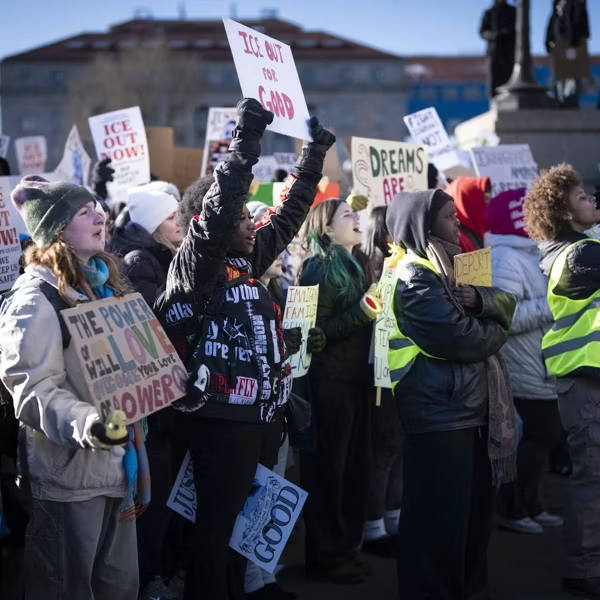In 2005, when I was two years old, my mom brought me across the border from San Luis Potosi, Mexico. We came to reunite with my dad, who was already here and had started his own concrete business in the New Orleans suburbs, where we still reside. For the longest time, I didn't even know I was undocumented. But that changed two years ago, when I realized I couldn't get a driver's license like my other friends.
I'm now 18. This spring, I graduated from Thomas Jefferson Academy in Harvey, LA with a 4.0 GPA and received a full-ride college scholarship to study behavioral neuroscience. But one wrong move--even if I'm simply sitting in the passenger seat of a friend's car and we get pulled over--could result in my deportation.
We are students, healthcare professionals, entrepreneurs and main street service providers. We are American in our hearts, but we wake up each morning feeling terrified.
That's increasingly possible. This summer, a Texas federal judge ruled that the Deferred Action for Childhood Arrivals program was illegally implemented. Current DACA recipients aren't impacted; they can live and work in America. But 81,000 young people like me, who have applications pending, are now shut out of the program. We are students, healthcare professionals, entrepreneurs and main street service providers. We are American in our hearts, but we wake up each morning feeling terrified.
Still, there's reason for hope. The Budget Reconciliation bill (BRB) can include a pathway to permanent residency and citizenship for millions of immigrants, including Dreamers like me. With this security we'd finally be able to reach our full potential and give back to the country we know as home. The overwhelming majority of Americans, including 68 percent of Republicans, support our protection. Congress can't wait any longer, and the Democrats must maintain momentum on passing a new version of the BRB that provides a pathway to permanent legalized status for those who need it. It's not only the right thing to do, it's also critical.
America is at a crossroads. For the first time, our population is declining. According to the Brookings Institute, 31 states have declining youth populations. In the next year or two, the number of teenagers who turn 18 will start to decline for the first time. At the same time, we're facing a labor crisis; we need every able body and mind contributing. Given that, we'd be crazy to keep undocumented youth from pursuing their full potential.
Every year, an estimated 98,000 undocumented students graduate from American high schools, but we can't legally work. In many states, we can't even drive. And yet we are intent on bettering ourselves. In 2018, more than 450,000 undocumented high school graduates pursued higher education, according to New American Economy. We did this even though we're ineligible for federal financial aid and must pay out of state tuition in many of the states where we grew up. Dreamers routinely work our way through college--sometimes juggling our coursework with multiple under-the-table jobs. Even so, we pay our taxes. We understand hard work and responsibility. In short, we're exactly what American employers want.
Permanent residency and citizenship would make higher education much more accessible for Dreamers, and it would allow employers to legally hire us. So many want to. Take our nation's severe healthcare shortage, which devastated Louisiana hospitals during Covid. Even before the pandemic, our state's nurse shortage was projected to quadruple by 2025. And a recent Washington Post/Kaiser Family Foundation poll found that 3 in 10 health care workers have considered leaving the profession. The physician numbers are equally dire; by 2033, the country will be short 133,000 doctors, according to recent projections by the Association of American Medical Colleges.
Currently, 62,500 Dreamers work in healthcare. My dream is to become a doctor. Doesn't America need me? Even the judge who ruled that DACA wasn't legally implemented, understands how important Dreamers are. He directly wrote about America's "significant reliance" on us.
The school year is well underway and I'm trying to focus on my first semester as a college freshman. It's not easy. In the back of my mind, I constantly worry that a police officer might stop me on the street. Or what if I'm in danger and need to turn to the police? What if I need to report a crime? Any of these scenarios could kill my dreams. I could be deported at any second, because of a choice my parents made when I was a baby.
The fact that undocumented students like me can even think about our futures under such pressure is a testament to our determination. We need DACA, yes, but we also need permanent protections. Dreamers are smart investments. America will be a lot emptier without us. Congress must pass a version of the Budget Reconciliation bill that considers us.




